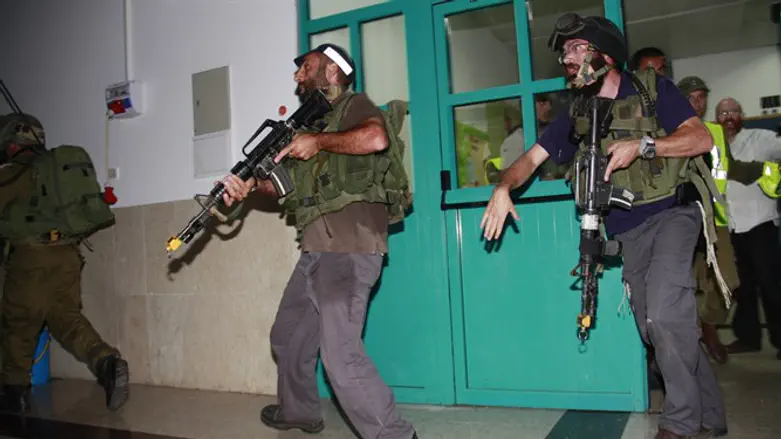
The Knesset Subcommittee for Border Area Affairs, headed by MK Avi Dichter (Likud), held a special recess session on Monday discussing the IDF staff decision on the future of community first-response squads.
Representatives of the IDF border unit presented the committee with its principles according to which the IDF's defense concept was formulated in communities under their responsibility, while examining professional operational considerations as well as risk management.
The staff work, approved by the Chief of Staff, was based on the geographical location of a given community and history in that sector. Situation assessments will be carried out constantly to determine the level of threat and whether it justifies the "routine protection department" receiving equipment and weapons, and training frequently in the dedicated school established for the purpose to maintain a high level of battle-readiness.
Border Police representatives informed the committee it was decided to set priorities according to the level of threat, to provide an optimal response to 350 communities that were chosen, as opposed to a more superficial response to all settlements under army responsibility.
In response to a question by the Committee Chairman about participation of internal security officials in the staff work, IDF and Border Police representatives responded that this is internal and exclusive work of the IDF regarding the communities under its responsibility, and therefore does not deal with the issue of the communities under the responsibility of internal security and the use of manpower and equipment in them.
A number of local security officers and coordinators participated in the hearing, saying the IDF informed them unilaterally and with no discussion of the decision and gave the date of the last quarter of the year when weapons would be collected from those settlements not defined as needing a first-response squad, leaving officers and security coordinators alone until the- army's arrival.
In view of the state of affairs, the committee called to halt the process until it is regulated by all bodies involved.
Committee Chairman MK Avi Dichter summed up the discussion by saying, "This is an important issue at the national level, but the committee was not impressed that until now there's an organized national perception. The first-responders may be the difference between an incident that they managed to contain and a tragic one. Our enemies don't take into account the geographical location in relation to the border in order to carry out their plan.
"The IDF did the best it can do, within the limits of its responsibility, but the other bodies are in an unclear situation. The National Security Council must examine the significance of the IDF's final staff work vis-à-vis other government ministries and the reality on the ground. The committee requests that no changes be made in the field at least until January 2019, until a clear picture is received from the committee on behalf of the government - which it will be possible to examine - that the current situation is unreasonable," Dichter said.